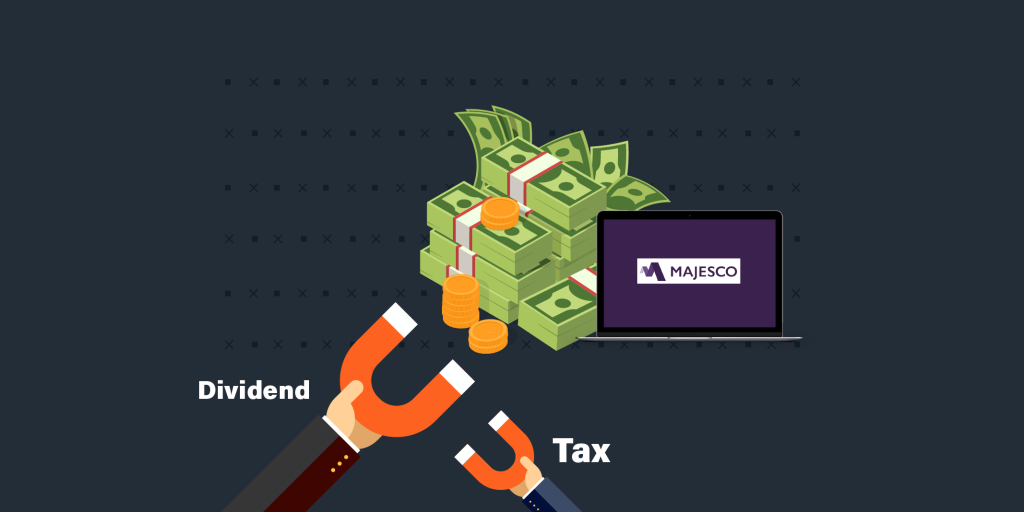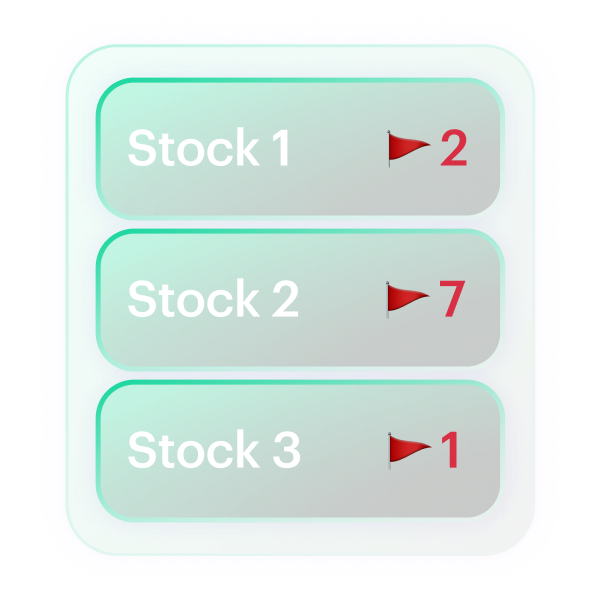Last Updated on Sep 21, 2022 by Aradhana Gotur
At ~19,480%, Majesco Ltd’s interim dividend may have enticed you to add the stock to your investment portfolio. After all, it is the highest dividend payout ever declared by an Indian firm. While it would be a delightful sight to see a hefty dividend deposited in your bank balance, it makes sense to know the consequences as well.
In this article, we discuss how dividends affect stock prices, information that would help you make better investment decisions if you are not an existing shareholder of Majesco but are looking to buy the stock for its handsome dividends. In other words, you are resorting to dividend stripping.
Table of Contents
About Majesco Ltd
Majesco Ltd is a software exporter. The company started out as an American subsidiary of Mumbai-based software provider Mastek in 2014. But it was spun off as a separate entity later.
The source of Majesco Ltd’s dividends
Earlier this year, Majesco Ltd sold its US arm to private equity firm Thoma Bravo for $594 mn. These proceeds account for the bulk of its revenues and profits, which the company is distributing as dividends. At the rate declared, each Rs 5 share would get a dividend of Rs 974.
But wait. Why did the company declare dividends when it could plough back the profits to expand its business? That’s a good question to ask before betting on Majesco Ltd.
Relevant dates of dividend declaration
- Record date: 25th Dec 2020
- Ex-dividend date: 23rd Dec 2020
- Likely earliest dividend payment date: 30th Dec 2020
Should you buy Majesco for its attractive dividends?
Here are a few details you should know before buying Majesco Ltd to earn hefty dividends.
You attract tax on dividend
Dividend earned from a domestic company was exempt until 31st Mar 2020. However, starting Apr, dividends received are taxable in the hands of the receiver as per the applicable tax rate. So if you are an HNI, you would have a massive tax to forgo considering the applicable surcharge too. Moreover, dividend income also attracts TDS. So, if you are looking to invest in Majesco for dividends, you might as well be ready to pay taxes.
But as an existing shareholder looking to sell the stock, you would attract a long-term capital gains tax of 10% or a short-term capital gains tax of 15%. So if you are gripped by the dilemma of whether to stay invested in Majesco to benefit from its massive dividends or exit now and book profits, it is better to take a call after doing a cost-benefit analysis. That is, after ascertaining your probable tax liability in two cases.
Majesco’s stock prices could be impacted by dividends
Before buying Majesco Ltd or any dividend stock for that matter, it is best to understand how dividends impact the stock price. Here are some dividend dates you should be familiar with in order to make better-investing strategies.
Announcement date
The announcement date or the dividend declaration date is the date on which a company’s board of directors announces the next scheduled dividend.
Impact of announcement date on dividends
Corporate actions impact stock prices. Likewise, any change in the dividend amount to be distributed as declared on the announcement date can cause volatility in the stock price. For instance, if for a year, a company declares a lower dividend or nothing compared to the previous years, investors may perceive that it is in financial turmoil. As a result, they may liquidate their investments in the stock as a defence mechanism. This sends the price tumbling down. Conversely, declaration of a higher or equivalent dividend would make investors want to buy the stock, thereby boosting its price.
Record date
This is the cut-off date set by the company to ascertain the shareholders that are eligible to receive the dividend. Ergo, if you are not a shareholder of the company as of this date, you are not eligible to receive the dividend.
Impact of record date on dividends and stock price
The record date doesn’t have an impact on dividends or stock price.
Ex-dividend date
Generally, the ex-dividend date falls on two business days prior to the record date. You will only receive the next dividend declared by a company if you buy a stock before the ex-dividend date. That is, if you buy a stock after the ex-dividend date, you won’t receive the dividend.
Impact of the ex-dividend date on dividends and stock price
Considering an attractive dividend payment, you may be willing to buy the stock even at a premium before the ex-dividend date so that you become eligible to receive it. This boosts the stock price, which may rally up till the ex-dividend date. Before this date, the stock price is cum-dividend. Meaning, the stock price reflects the reserve earmarked for the dividend. However, the price would fall on the ex-dividend date since the company’s reserves would be reduced by the amount of dividend declared.
So if Majesco’s cum-dividend stock price is Rs 600 and dividend per share is Rs 500, on the ex-dividend date, the stock price would fall to Rs 100. While this results in a capital loss, Section 94(7) of the income tax rules prohibit you from claiming the benefit. As per the section, a capital loss incurred on selling stocks that you bought within 3 months before the record date and sold them within 3 months after the record date, are not allowed to be set off to the extent of dividend received.
Payment date
This the date on which the company distributes the dividend to shareholders.
Impact of payment date on dividends and stock price
Just like the record date, the payment date doesn’t impact dividends or stock price.
Now that you have all the details you need to make an informed investment decision, think over and do what’s best for you.
- List of Top Performing Index Funds in India (2025) - Apr 25, 2025
- Gilt Funds in India for 2025 – Meaning, Taxation, and More - Apr 21, 2025
- Alternative Investment Fund (AIF): Meaning and Category of Various AIFs - Apr 21, 2025




